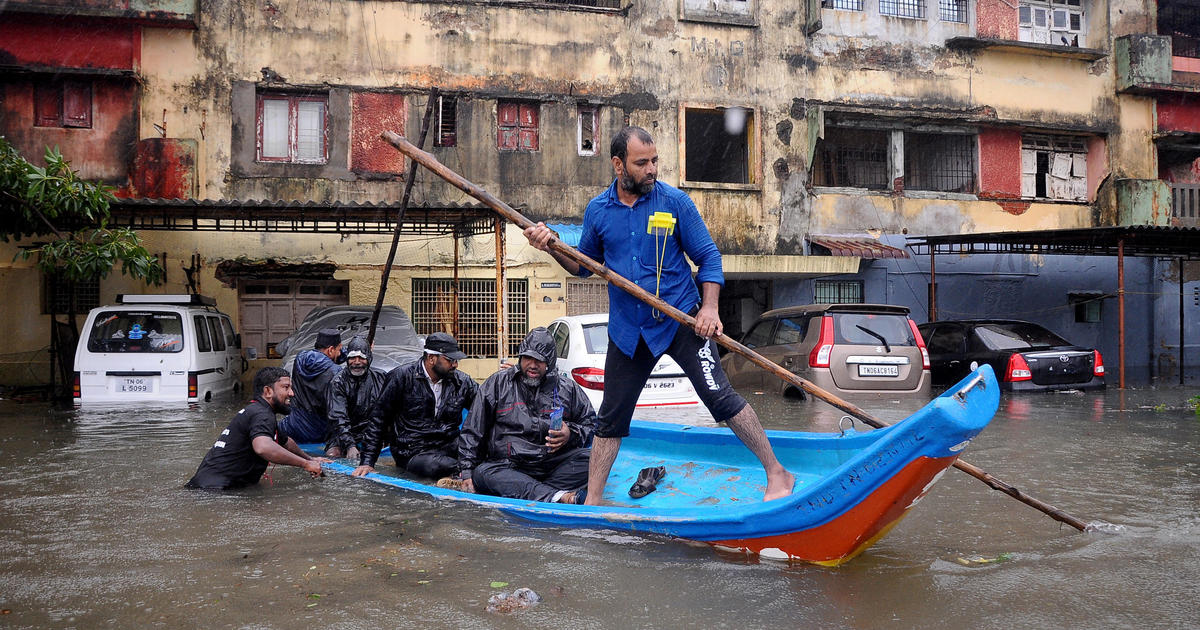New Delhi — Heavy rain and flooding brought by the approaching Cyclone Michaung snarled life in the South Indian city of Chennai Monday. Streets in most parts of the city — home to some 12 million people — were water-logged as the severe cyclonic storm bore down on India’s coastline ahead of an expected Tuesday landfall.
Parts of Chennai, the capital of Tamil Nadu state, and neighboring districts got almost an inch of rain overnight as the powerful storm churned toward India’s southeast coast in the Bay of Bengal.
Chennai’s airport halted operations until at least Monday evening as heavy rain submerged its runway and strong winds whipped up. Airport authorities cancelled 70 flights and diverted more than 30 others to Kempegowda airport in neighboring Bengaluru city.
STRINGER/REUTERS
Videos posted online showed airport ground crew members in water almost knee-deep checking parked aircraft.
Indian media outlets showed videos of several cars being swept away by floodwater in Chennai streets. The waterlogging also forced the cancellation of least six trains in the coastal state.
State authorities issued alerts ahead of the cyclone’s expected landfall on Tuesday morning. Schools and colleges were closed and employees urged to work from home as the rains started pouring down Monday. Thousands of people were evacuated from coastal areas and officials set up 5,000 relief camps for them on higher ground.
Cyclone Michaung was a “severe cyclonic storm” Monday in the southwest Bay of Bengal, moving north-northwest toward the coast at about 9 miles per hour. It was forecast to make landfall Tuesday in the coastal state of Andhra Pradesh with sustained winds up to 62 mph and gusts close to 70, India’s national weather office warned.
R. SATISH BABU/AFP/Getty
More than 7,000 people had already been evacuated from eight coastal districts in that state as of Monday.
The warm waters of the Bay of Bengal have spawned several deadly cyclones over the past few years, causing massive destruction in both India and Bangladesh.
In 2020, Cyclone Amphan killed at least 80 killed people in India and left thousands homeless. In 2019, Cyclone Fani claimed at least 89 lives and displaced millions in Odisha, another coastal Indian state. In 1999, a super cyclone killed about 10,000 people as it slammed into Odisha.
Scientists have linked the rising frequency and intensity of cyclones in the Bay of Bengal with global warming.
“The Indian Ocean is warming, and we know that warm ocean water is the first, and perhaps the key ingredient for the formation of tropical cyclones, so the system is primed for more storms,” Simon Wang a climatologist at Utah State University, told CBS News in 2020.
















































